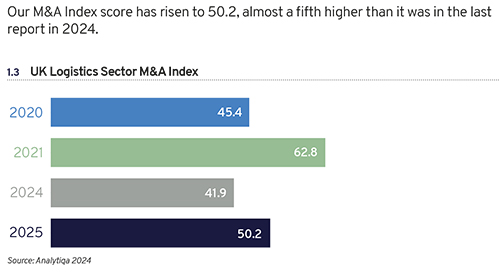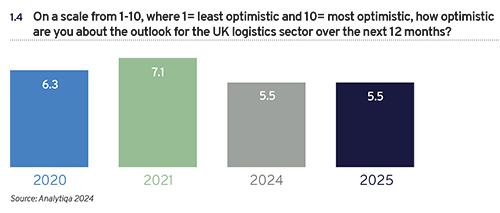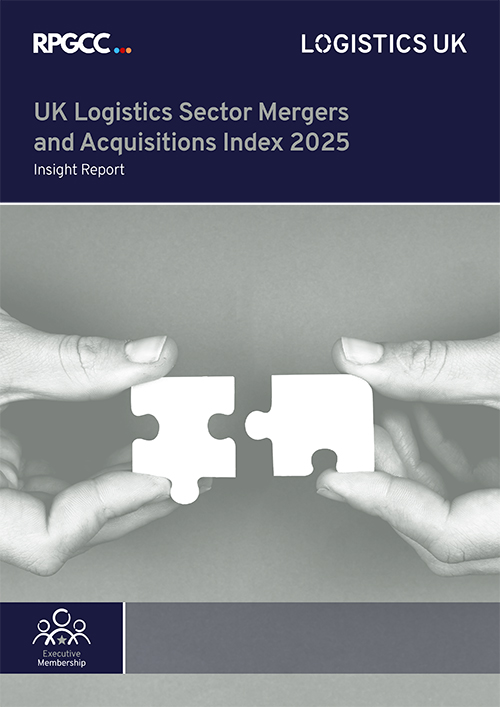
Table of Contents
1. Foreword
2. Executive Summary
UK Logistics Sector M&A Index
3. Business sentiment
Respondents
The M&A Index and business sentiment
Increased labour costs top table of future challenges
The drive to decarbonise
4. Mergers and acquisitions trends
Consolidation likely to increase
Business investment levels buoyant
Productivity challenges
Future intentions
Key M&A drivers
M&A success factors
Financing M&A
Structuring a deal
Post-deal issues
Barriers to M&A activity
Looking ahead
Now in it's 5th edition
Download the 2024 report here:
UK Logistics Mergers & Acquisitions Index 2024
Contact us to access copies from previous years

![]()
RPG Crouch Chapman and Logistics UK, in conjunction with Analytiqa, are delighted to publish the fifth edition of the UK Logistics Mergers & Acquisition report.
These results draw on the insights of senior executives within logistics companies in the UK to provide a view on expected trends in M&A, including valuations as well as addressing a range of issues currently facing the sector, including business investment, productivity and decarbonisation.
Geopolitical conflicts, such as the war in Ukraine and developments in the Middle East, continue to impact on global supply chains. While global trade hit a record high in 2024, much of the growth was driven by a rise in the trade of services, with goods accounting for a more modest share of the increase.
Given this mixed wider context, the results of this research are on balance reassuring, with the 2025 M&A Index returning to positive territory.

Extracts from the report...



About RPG Crouch Chapman
RPG Crouch Chapman (RPGCC) are experts in bespoke, tailored accounting solutions, they have been tailoring their services to meet the demands and needs of companies of all sizes for many years. The focus is always on getting great results for businesses, (and their owners) no matter what industry they’re in, RPGCC aim to get it right.

About Logistics UK
Logistics UK supports, shapes and stands up for safe and efficient logistics, and is the only business group which represents the whole industry, with members from the road, rail, sea and air industries, as well as the buyers of freight services such as retailers and manufacturers whose businesses depend on the efficient movement of goods.
Get in touch




